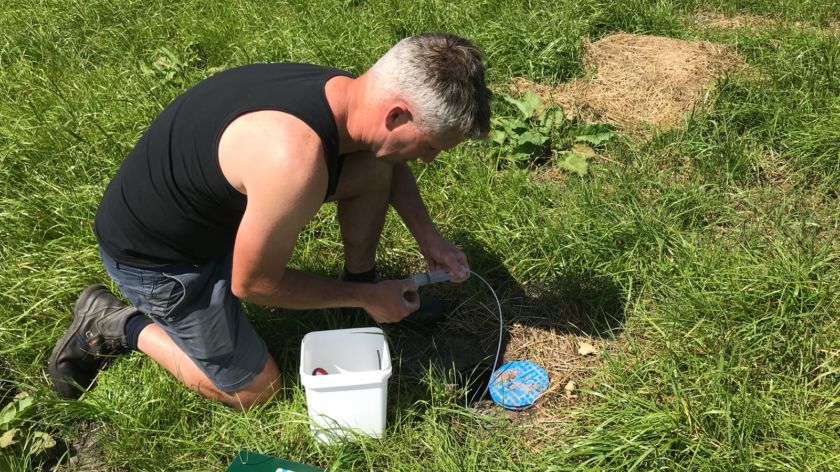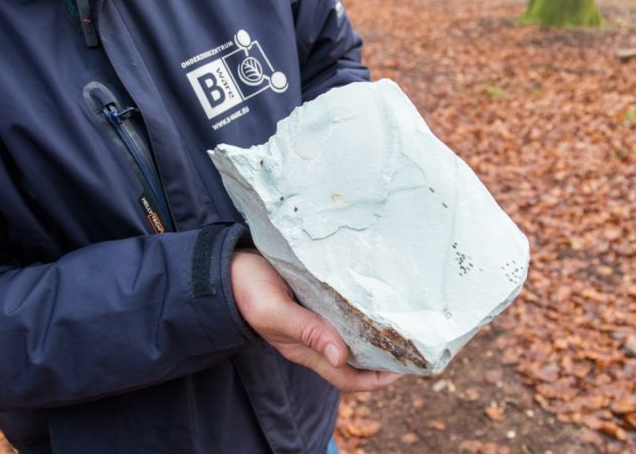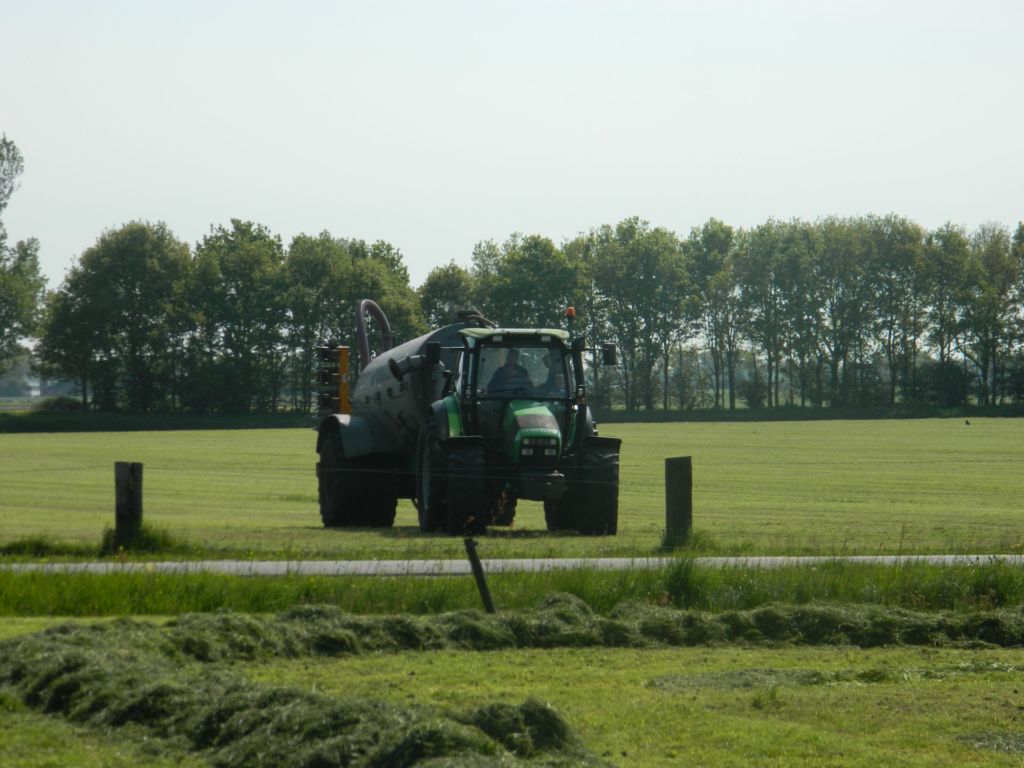The new silver bullet of the agricultural sector is called zeolite
-
 Frisian dairy farmer Bas Vernooy collecting water samples under his field. Photograph: Wytske Bijstra
Frisian dairy farmer Bas Vernooy collecting water samples under his field. Photograph: Wytske Bijstra
Can a porous, volcanic rock help solve the nitrogen crisis? It looks like it. In a pilot study, researchers from B-WARE, a Radboud University spin-off, reveal that grassland sprinkled with zeolite contained up to 80% less nitrate in the groundwater.
Scientific breakthroughs sometimes arise from coincidences. On holiday in France, Mark van Mullekom, a researcher at research centre B-WARE (a Radboud University spin-off, Eds.) specialising in nature restoration, got into conversation with a dairy farmer from Hoornsterzwaag in Friesland after their children introduced them to each other. After only a short while, even French sun could not keep the two men from talking shop.
‘The farmer explained he’d recently started sprinkling his land with zeolite, a porous volcanic rock type,’ says Van Mullekom. ‘Since then, his crop yields had increased. Plus, the ground rock granules kept his stables dry and mixing zeolite in cattle feed made his cows more disease-resistant.’
Tap water
Van Mullekom put the ground rock’s name in his telephone and after his holiday immediately contacted a zeolite supplier. But the researcher was not immediately convinced. ‘In the agricultural sector people often claim to have discovered some miracle substance or other,’ he says. ‘They’re just trying to make money. I was actually interested in a different question: can zeolite help reduce groundwater nitrate levels in sand and loess soil?’

It’s an old sore spot in Dutch agriculture: the use of fertiliser leads to a high nitrate concentration in the soil. When it rains, the nitrate leaches into the groundwater. Too much nitrate in groundwater is disastrous for biodiversity in wet nature reserves. In addition, drinking water companies pump this water, and although in small quantities nitrate is not harmful for humans, drinking water is subject to the strict EU norm of maximum 50 milligram per litre. ‘It costs a lot of money and effort to keep the nitrate concentration in our drinking water under the norm,’ says Van Mullekom.
Measurements for groundwater quality in the test strips on the Frisian farmer’s land confirmed the researcher’s suspicions: on fields sprinkled with zeolite, the groundwater contained 70% to 80% less nitrate. ‘Zeolite is very effective at retaining ammonium, so the farmer’s crops probably profit from the available nitrate longer, leading to higher yields,’ says Van Mullekom. ‘An additional advantage is that less nitrate leaches into groundwater. All in all, zeolite might have a substantial impact on nature, water, and the agricultural sector.’
Achterhoek
Water authorities, provincial governments, and farmers’ associations reacted enthusiastically to the results of the pilot study that appeared in Vakblad Natuur Bos Landschap (Journal of Natural Woodland). In collaboration with Wageningen UR researchers, on the border between Oost-Brabant and Noord-Limburg, in the Achterhoek, and in Zuid-Limburg, Van Mullekom now investigates the impact of zeolite on nitrate leaching, crop yields, and a company’s nitrate cycle. Some testing fields are sprinkled with zeolite while others are not. The researchers measure differences in groundwater quality and crop yields.
Van Mullekom hopes the earlier results will be confirmed in the new study. According to the researcher, higher crop yields and lower nitrate concentrations in groundwater represent a win-win situation, because farmers can easily earn back their investment. 400 kg of zeolite, the amount required for 1 hectare of agricultural land, only costs €100. ‘But even if the only effect turns out to be a reduced nitrate concentration in groundwater, the government and drinking water companies could use zeolite in drinking water areas or in areas from which nature reserves draw their groundwater.’ Lower rates of nitrate loss also contribute to the circular agriculture the government aims for.

Can zeolite contribute to resolving the nitrate crisis? ‘We currently mostly focus on nitrate emissions in the air and their deposition in vulnerable nature reserves,’ says Van Mullekom. ‘So far, less attention has been devoted to nitrate leaching into groundwater, even though this is a serious problem: European norms are being exceeded and the impact on the environment is substantial. We may be able to solve this problem with zeolite. We’ll know more in a year’s time.’
What is zeolite?
The name zeolite comes from Greek and means ‘boiling rock’, because it releases water when heated. The rock grows in the vicinity of volcanoes and is extracted in mines all over the world. The zeolite used by B-WARE comes from Slovakia. Because the rock is porous and consists mostly of air, it’s very light and has a large negatively charged surface to which positively charged substances like ammonium can bind. In addition to many applications in agriculture and water purification, zeolite is also used as cat litter.



